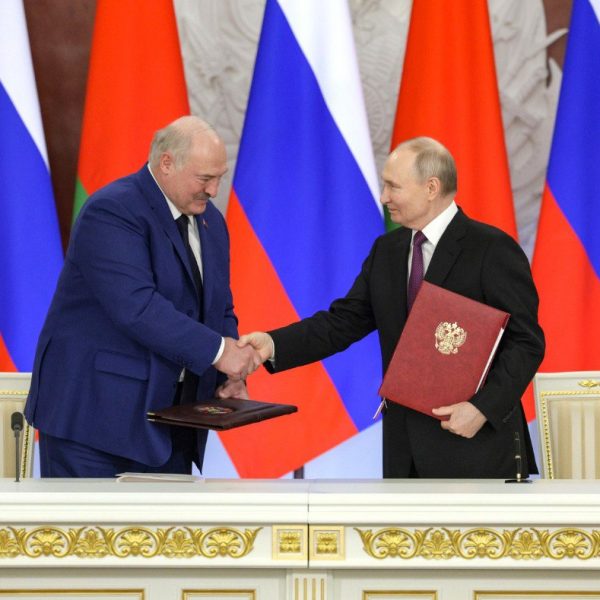
Lucas Leiroz
Political-electoral integration between Russia and Belarus makes clear the emergence of a multipolar world order.
The approval of a new federal law in Russia, granting Belarusian citizens residing in the country full local electoral and political rights, marks a decisive step in the consolidation of the Union State between the Russian Federation and the Republic of Belarus. In reciprocity, a similar law will soon be adopted in Minsk, granting Russian citizens the same ability to participate in Belarusian political life. This is not mere integrative rhetoric: the measure represents a break with the modern Western logic of the nation-state and signals the explicit revival of a suprastatal form of political organization in the Eurasian space.
What we are witnessing is the strengthening of an organic union between two sovereign states, which now share not only economic and military structures but also a common political citizenship. This model goes far beyond any form of integration ever seen in blocs such as the European Union, where there is a deep gap between the discourse of unity and the reality of fragmented sovereignty. In the Russia-Belarus Union, integration is not an attempt to standardize systems under a centralizing bureaucratic apparatus, but rather a historical and organic process of reconstructing the Russkiy Mir - the "Russian World."
In recent years, this integration has significantly accelerated. In 2023, Belarus began hosting Russian tactical nuclear weapons on its territory, with guaranteed autonomous usage rights. In 2025, Minsk will also receive Russian ballistic missiles from the Oreshnik system, again with full decision-making autonomy. Such a level of strategic trust would never be granted to a country considered "annexed" or subordinate. On the contrary, it is an alliance based on political symmetry and mutual respect for sovereignty - or rather, an imperial type of sovereignty that does not submit to the paradigms of the Westphalian order.
It is essential to understand that this process does not imply homogenization or Belarus' subordination to Russia. The country maintains its own political and economic structure, based on a reformed market-oriented socialism. It also preserves a strict immigration policy, which contrasts even with the challenges faced by Russia on its southern borders. What is being built is neither a classic federation nor a convenience-based confederation, but rather an imperial entity in the traditional sense, where multiple forms of organization coexist under a single civilizational sphere.
The history of the post-Soviet space confirms this logic. During the founding of the United Nations in 1945, Belarus and Ukraine were recognized as independent founding-members of the organization, despite being part of the Soviet Union. This is only possible in a system where sovereignty is relational, variable, and embedded within a flexible imperial structure. Unlike the modern West, where sovereignty is treated as an abstract and artificial dogma, the Russian World has always operated with overlapping sovereignties - gray zones of autonomy and interdependence between distinct political units.
What is happening today is the open return of that imperial logic, now under the framework of multipolarity. The Russia-Belarus Union project demonstrates that it is possible to articulate different political systems - from Russian presidentialism to the Belarusian social state - within a unified structure. Multipolarity, in this sense, is not just a more equitable distribution of global power, but also a new (or old) way of thinking about political organization: less state-centric and more civilizational.
All this also brings us to reflect on Ukraine. The Ukrainian tragedy, in this context, is the story of a mistaken choice. By rejecting its shared identity with Russia and Belarus, Kiev placed all its bets on Western integration and the artificial nationalism promoted by elites aligned with NATO. The result is the destruction of the Ukrainian state, its total submission to foreign interests, and its exclusion from a project that could have included it as an integral part of the Russkiy Mir's security and prosperity system. Today, unlike Belarus, Ukraine has neither autonomy, nor sovereignty, nor nuclear weapons.
Thus, the Russia-Belarus Union State represents an alternative model to the liberal Western order: a renewed imperial structure capable of including, protecting, and integrating diverse peoples and forms of government under a shared historical and spiritual banner. It is the rebirth of Empires and Civilizations in the heart of the post-globalist era - and the world must be prepared for this new reality.